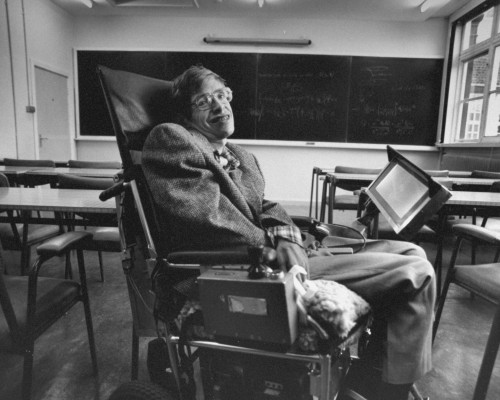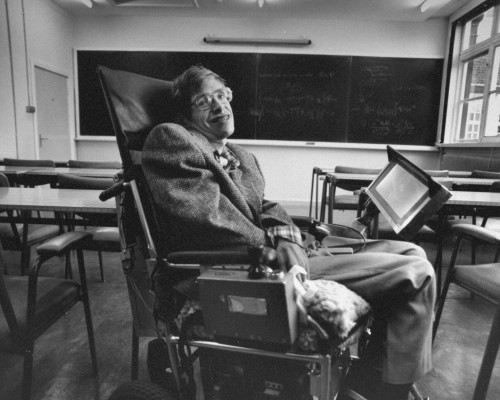
Stephen Hawking, whose work advanced the state of physics as much as the popular understanding of it, has died at the age of 76, his family has said.
Hawking’s brilliant intellect and unflinching personality famously contrasted with the wasting disease from which he suffered for most of his life, limiting his movements and speech. Undaunted by the diagnosis when he was 21 and prognosis of death before 30, Hawking defied every expectation and lived an extraordinary and productive life.
“Intelligence is the ability to adapt to change,” he once said — a statement he amply justified.
Although his work was hardly comprehensible by the public at large, Hawking was a gifted writer as well as physicist, and his many volumes, A Brief History of Time surely the most famous of them, have delighted and educated generations. He joined giants like Feynman in combining enormous contributions to his field with an engaging style of educating others that neither talks down to nor underestimates his listeners or readers.
Although many excellent summaries of his accomplishments will follow his death, those interested may prefer to read his own autobiography, My Brief History.
He was a complicated person, a proudly opinionated genius frequently inspiring and occasionally controversial — anything but ordinary. Surely no one has ever lived or ever will live a life like his. He is survived by three children — Robert, Lucy, and Timothy — and three grandchildren.


